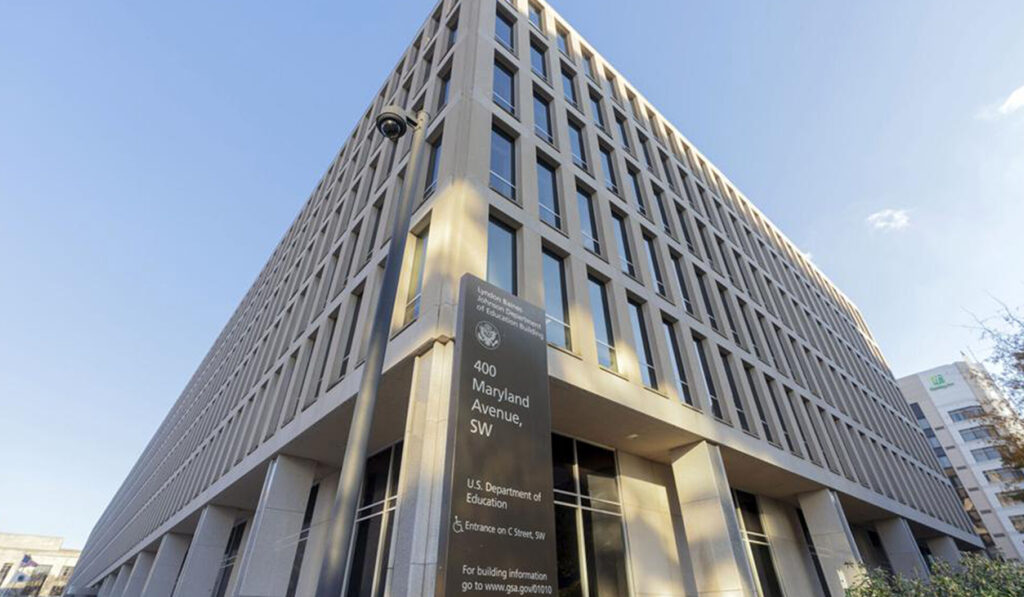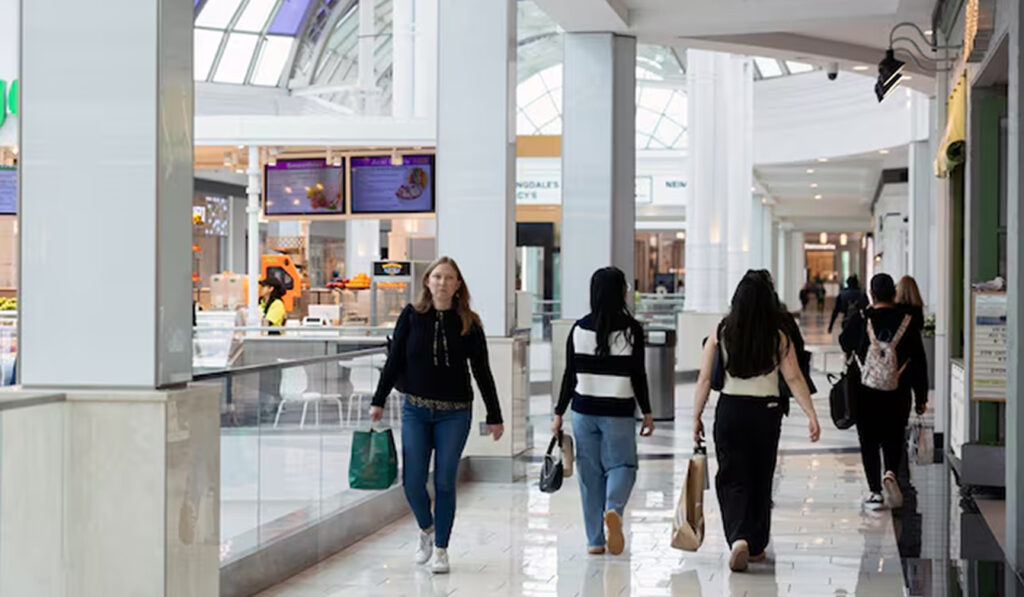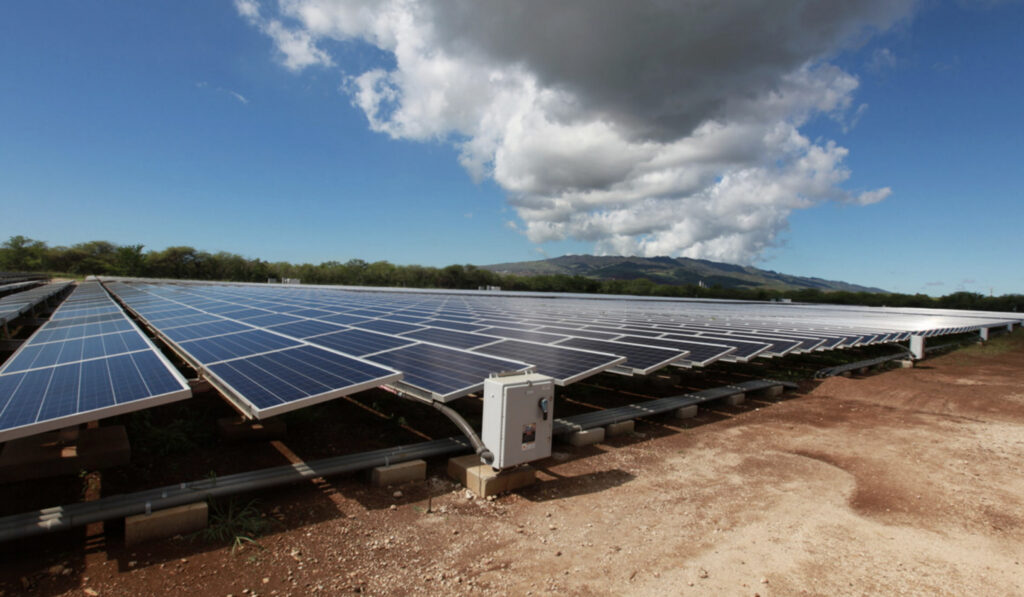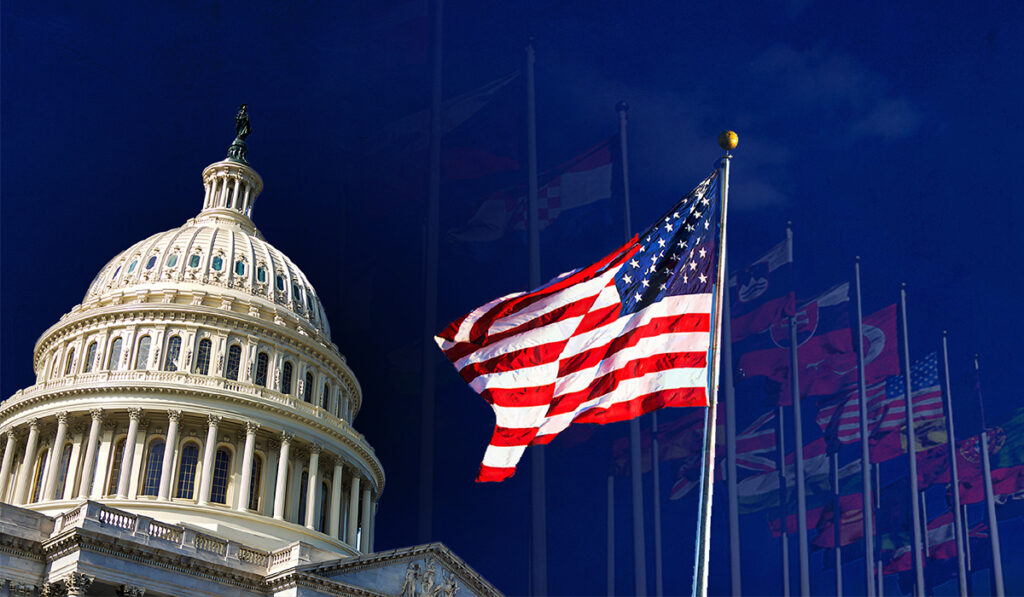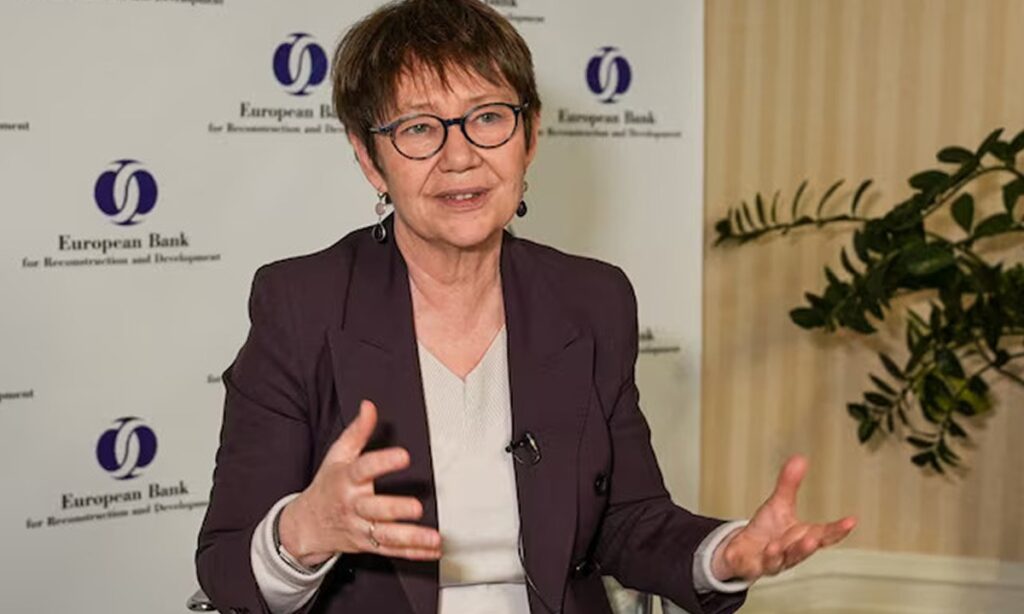
The European Bank for Reconstruction and Development (EBRD) has extended the deadline for its 2023 capital increase subscription to the end of 2025, providing additional time for shareholders, including the United States, to fulfill their financial commitments.
As of now, over 60% of the EBRD’s 75 shareholders have completed or initiated the payment process for the capital increase approved in late 2023. However, the United States, the bank’s largest shareholder with a 10% stake, has yet to contribute. The U.S. Treasury has not commented on the matter.
EBRD President Odile Renaud-Basso emphasized the bank’s strong financial standing and its commitment to core development priorities, including green energy and human capital initiatives. She also highlighted plans to expand operations into Sub-Saharan Africa, with anticipated approvals for activities in Nigeria, Ivory Coast, and Benin.
The extension of the capital contribution deadline comes amid shifting U.S. attitudes toward global development financing. Under the current administration, the U.S. has proposed a $3.2 billion contribution to the World Bank’s International Development Association, falling short of the $4 billion pledge made by the previous administration.
Despite the uncertainty surrounding U.S. contributions, Renaud-Basso expressed confidence in the EBRD’s financial health and its ability to continue supporting projects across its regions of operation.
The EBRD’s decision to extend the deadline underscores the importance of multilateral development banks in addressing global challenges and the need for continued support from all shareholders to achieve shared development goals.
U.S. Delays Raise Concerns About Multilateral Funding Stability, But EBRD Maintains Growth Trajectory
Despite the uncertainty surrounding American participation, the EBRD remains optimistic that the full €4 billion capital increase will be realized. The bank reiterated its long-term investment strategy, particularly in supporting Ukraine’s reconstruction and resilience, a priority that has gained urgency as the war with Russia continues into its third year.
“In spite of the financial hold-ups from some contributors, we are moving forward with our most vital projects,” said EBRD President Odile Renaud-Basso during the bank’s annual meeting in Yerevan, Armenia. “We remain on solid financial footing, and the majority of our shareholders have already stepped up.”
U.S. Role Seen as Strategic and Symbolic
While the United States is not the largest financial backer in absolute terms, its influence within the bank is substantial due to its voting power and strategic support. A delay in U.S. payments is not only a budgetary gap—it also sends a political signal that could influence the commitment levels of smaller shareholders.
The U.S. Treasury’s silence has raised eyebrows among allies, particularly in light of Washington’s vocal support for global infrastructure and energy transition efforts through initiatives like the G7’s “Partnership for Global Infrastructure and Investment.” Critics warn that hesitation to fund organizations like the EBRD undermines those commitments.
EBRD Expansion Plans Unaffected
The funding delay has not deterred the EBRD’s ambition to expand into new territories. In addition to its work in Ukraine, the bank is actively preparing to launch full-scale operations in Nigeria, Ivory Coast, and Benin—part of its newly approved mandate to operate in select Sub-Saharan African nations.
“These expansions mark a significant moment for us, as we bring our development model to new markets with strong growth potential,” Renaud-Basso said.
Focus Remains on Climate and Private Sector
The EBRD continues to prioritize financing for green energy and private sector-led growth. In 2024 alone, it invested €13.1 billion across 35 economies, with more than half of those funds going toward climate-related projects. The bank also confirmed it will align all its operations with the goals of the Paris Agreement by the end of 2025.
Outlook: Optimism with Caution
While the deadline extension provides breathing room, the EBRD is urging all remaining shareholders to fulfill their pledges in order to support a growing list of critical infrastructure and humanitarian needs.
“There’s no time for delay,” Renaud-Basso concluded. “The global development landscape is shifting, and multilateral institutions must be fully equipped to respond.”
News Source: Reuters
Dwayne Paschke is an experienced news reporter and media professional, currently working as a senior news analyst for a private media organization based in Toronto, Canada. With years of experience in journalism, he brings a wealth of knowledge to his role, where he contributes to Los Angeles Headlines by providing accurate and comprehensive coverage of significant news stories.



